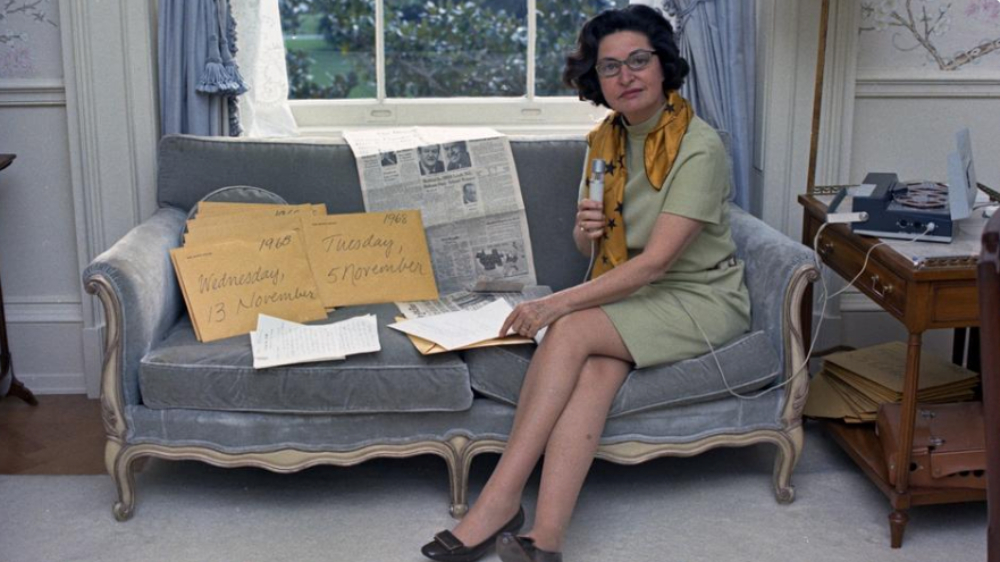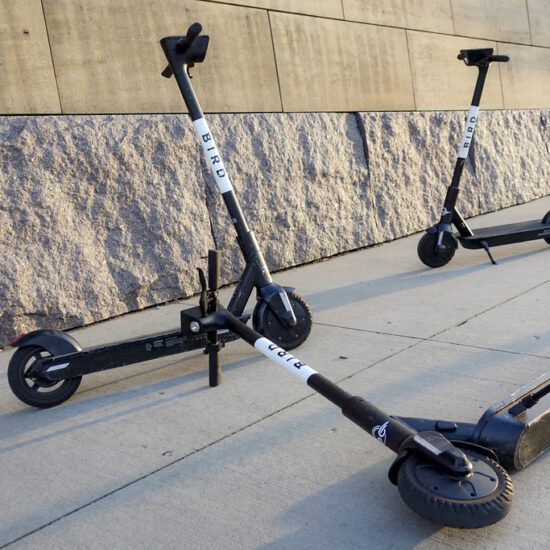
Busy documentarian Dawn Porter will debut her latest project, “The Lady Bird Diaries,” March 10 at SXSW. The all-archival doc, which will bow on Hulu later this year, relies on 123 hours of personal and revealing audio diaries that Lady Bird recorded during her the presidency of her husband, Lyndon Baines Johnson. The tapes, which were not publicly released until 2017, reveal the critical role the former First Lady played in LBJ’s White House as a close advisor and trusted political partner.
Claudia Alta “Lady Bird” Johnson began her recording diary shortly after the assassination of John F. Kennedy in November 1963 and kept recording through her family’s departure from the White House in January 1969. Julia Sweig spent five years researching the diaries for her 2021 biography “Lady Bird Johnson: Hiding in Plain Sight,” which she turned into an eight-part podcast that formed the basis for Porter’s 90-minute docu, produced by Trilogy Films for ABC News Studios.
“I found a document that’s a strategy memo that Lady Bird wrote to LBJ in May of 1964,” Sweig, an executive producer on the project, told Variety. “He was worried that he might not be able to carry off actually being the President on his own. And Lady Bird says, ‘Yes you can, and you will win. And then in February or March of 1968, you can tell the country that you won’t be running for a second term.’ So, her influence was directly there.”
Variety spoke to Porter about the project and why she didn’t want to lionize the former First Lady.
How did this documentary come about?
Jackie Glover at ABC Studios came to me because she was familiar with my 2018 Netflix series “Bobby Kennedy for President.” So, she thought that I would be interested in Julia’s podcast, which I absolutely was. I think she also knew that I’m always interested in women, politics and civil rights. Because I had done some other films around this period in American history, it was just a delicious opportunity to review the same time period through Lady Bird’s eyes.
In “Bobby Kennedy for President” you explored RFK’s transformation from a law-and-order leader to progressive social justice and civil rights crusader. In this documentary we get to hear Lady Bird’s assessment of RFK, and it isn’t always complimentary. Were you surprised by that?
I was really surprised. She was very frustrated with Bobby’s coldness to Johnson. It was interesting to see her frustration with him and feeling like he was not appreciative at all of Johnson’s efforts to really finish what JFK started. But Johnson actually went much further, so it was interesting to see her take on that.
I also found it surprising that Lady Bird critiqued Johnson’s speeches and was so involved in his decision making during his time in the Oval Office. She even created the East Wing, correct?
It was Lady Bird who started the substantive policy arm of the East Wing, and she pressured Lyndon to actually allocate a budget for her staff — a staff that was doing policy work. So we would not have an East Wing necessarily if it weren’t for Lady Bird’s efforts.
The doc reveals that during her time in the East Wing Lady Bird had Black tenants who were living in squalor on her family farm in Texas. What did you make of that?
She’s such a fascinating character, and she’s certainly not above criticism or reproach. I mean, she is a Southern woman who grew up with Southern attitudes towards Black people. It’s unclear if she was unable to see the conditions that they were living in but it’s something that of course today we are all horrified by. I thought it was really important to include that in the film and point out that she was this 1950s white woman living in the 1960’s trying to navigate the background that she came from.
You realize that despite her intelligence she wasn’t perfect.
Yes. The point of the film isn’t to lionize her and say that she was revolutionary in all things. It’s really to take this perspective of this white woman at the time and show how she navigated this incredibly quickly changing society.
How did you decide what to use from the 120 hours of tapes Lady Bird recorded?
I wanted to focus on her public life and her contribution to politics that weren’t as visible as I thought they should have been. So, I focused on those parts of her tapes. You always have to pick a lens and not try and do everything because if you try and cover everything, you end up with a mosh. So, I chose to concentrate on what I’m really interested in, which is women’s power and how do they use it? How do they balance it?












